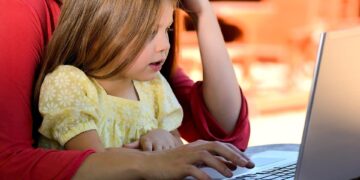Empowering Tomorrow’s Leaders: A Guide to Teaching Kids Responsibility
As parents, educators, and mentors, one of our most important tasks is to empower the next generation of leaders. Teaching kids responsibility is a crucial part of this process, as it equips them with the skills they need to succeed in life. By instilling a sense of accountability and independence in children from a young age, we are setting them up for future success.
The Importance of Teaching Kids Responsibility
Responsibility is a fundamental value that shapes a child’s character and sets the foundation for their future success. When children learn to take ownership of their actions and choices, they develop a sense of self-reliance and confidence that will serve them well throughout their lives. By teaching kids responsibility, we are helping them to become capable, independent individuals who are prepared to tackle the challenges of adulthood.
Ways to Teach Kids Responsibility
There are several effective strategies for teaching kids responsibility. One of the most important ways is to model responsible behavior ourselves. Children learn by example, so it is essential that we demonstrate the values and behaviors we want them to adopt. By showing our kids how to take responsibility for our actions and make thoughtful decisions, we are setting a powerful example for them to follow.
Another key strategy for teaching kids responsibility is to give them age-appropriate tasks and chores. By assigning children household responsibilities, such as cleaning their room or helping with meal preparation, we are teaching them valuable life skills and instilling a sense of responsibility. Encourage kids to take ownership of their tasks and praise them for their efforts to reinforce the importance of responsibility.
Setting Expectations and Consequences
It is important to set clear expectations and consequences for children when it comes to responsibility. By establishing guidelines and boundaries, kids know what is expected of them and understand the consequences of their actions. Consistency is key in enforcing these expectations, so be sure to follow through with consequences when necessary. This helps children learn the importance of accountability and the impact of their choices.
Encouraging Independence
Empowering kids to make their own decisions and solve problems independently is another effective way to teach responsibility. Encourage children to think critically, make choices, and take initiative in various aspects of their lives. By giving kids the opportunity to practice independence and decision-making, we are helping them develop the skills they need to navigate the challenges of adulthood with confidence.
Building Self-Esteem
Building self-esteem is an essential component of teaching kids responsibility. When children feel confident in their abilities and value, they are more likely to take ownership of their actions and make responsible choices. Praise and encourage children for their efforts and accomplishments, and provide them with support and guidance as they learn and grow. By nurturing their self-esteem, we are helping kids develop the confidence they need to take on responsibilities and succeed in life.
Common Questions About Teaching Kids Responsibility
How can I teach my child to be responsible?
Teaching kids responsibility begins with setting a positive example and providing opportunities for them to practice responsibility. Give kids age-appropriate tasks and chores, set clear expectations and consequences, and encourage independence and decision-making. By fostering a sense of accountability and self-reliance in children, we are helping them develop the skills they need to be responsible individuals.
What are the benefits of teaching kids responsibility?
Teaching kids responsibility has numerous benefits, including fostering independence, building self-esteem, and preparing children for the challenges of adulthood. By instilling a sense of accountability and ownership in children, we are helping them develop the skills they need to succeed in life and become confident, capable individuals.
How can I encourage my child to take on more responsibilities?
Encouraging children to take on more responsibilities begins with providing them with opportunities to practice independence and decision-making. Give kids age-appropriate tasks and chores, set clear expectations and consequences, and praise them for their efforts. By empowering children to make their own choices and take ownership of their actions, we are helping them develop the skills they need to be responsible individuals.
Conclusion
Teaching kids responsibility is an essential part of empowering tomorrow’s leaders. By instilling a sense of accountability and independence in children from a young age, we are setting them up for future success. By modeling responsible behavior, setting clear expectations and consequences, encouraging independence, and building self-esteem, we are helping kids develop the skills they need to navigate the challenges of adulthood with confidence. By following these strategies and fostering a culture of responsibility, we can help children become capable, independent individuals who are prepared to take on the responsibilities of leadership.












































